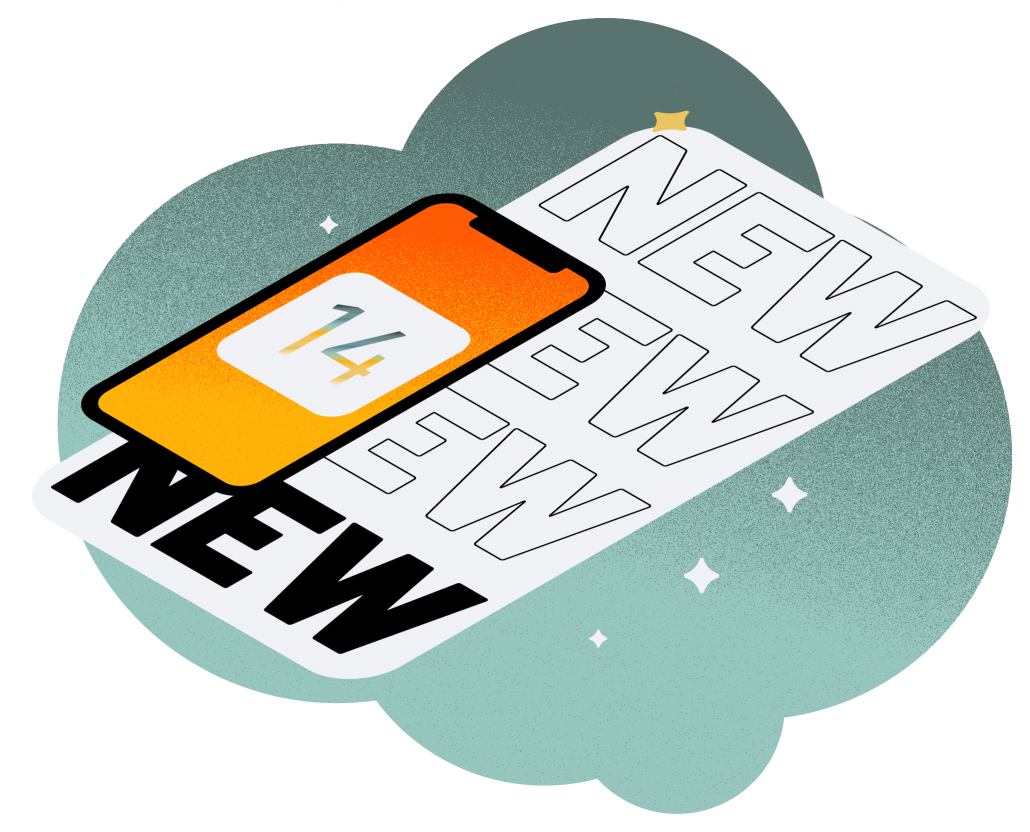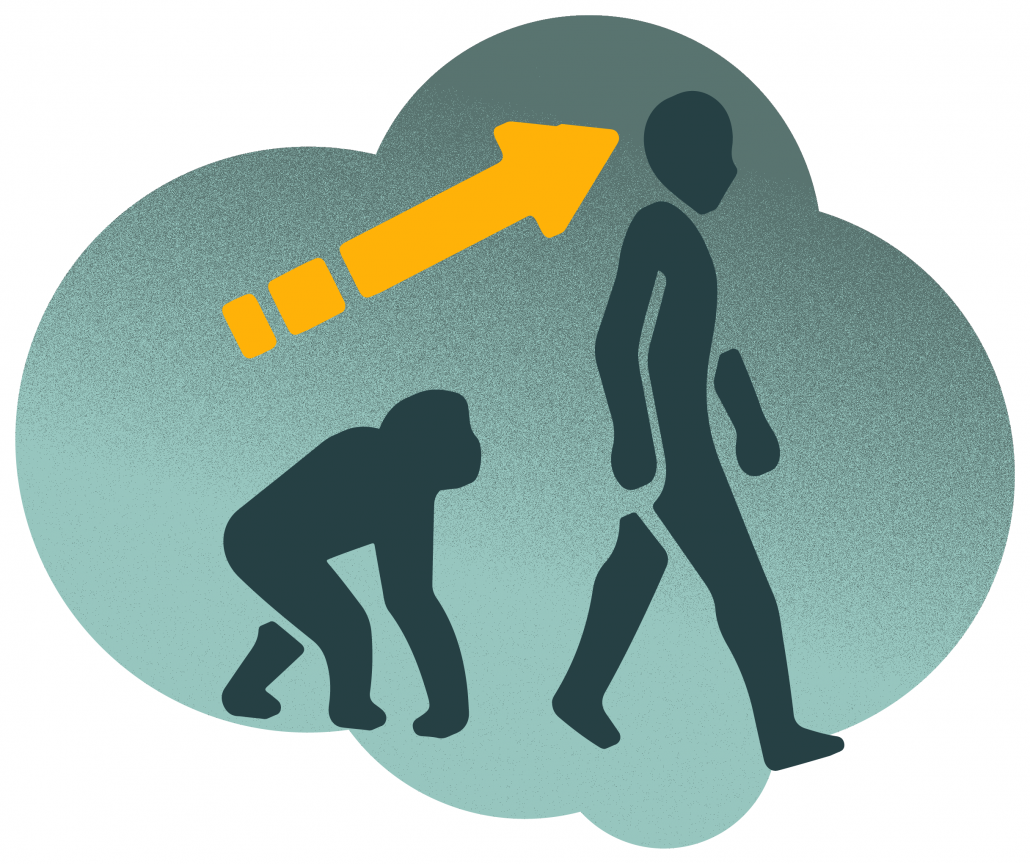How Will iOS 14 Affect the Location Data Industry?
Apple’s latest update has industry insiders scrambling to adapt. How will the platform’s focus on data privacy impact users, developers, and location data companies like X-Mode?
By Joseph Green
IOS 14 is coming. Apple launched the beta version of their newest operating system update earlier this summer, and its widespread release is expected as soon as the middle of September. Unveiled at Apple’s annual Worldwide Developer Conference at the end of June, iOS 14 signals a tide shift in the ongoing debate between user privacy and mobile data collection. With this latest update, Apple has made their position in that debate clear. What is that position exactly, and what will its ramifications be on the location industry? How will location data companies like X-Mode respond? Read on to find out.
What’s New in iOS 14?
As with every major update to Apple’s mobile operating system, iOS 14 introduces a number of new features. These include new add-ons to iMessage, Maps, and the app display; but the most noteworthy additions pertain to user privacy. These new privacy-centered features particularly affect how precise mobile location is collected, and they include:
- Approximate Location Option: Users will be able to opt for apps to collect approximate location (radius of 3 miles) instead of precise location, although precise location will still be the default setting.
- Permission to Track: All apps will be required to ask for explicit permission to track IDFAs (advertising IDs) across other apps and websites. If the user says no, the app cannot collect the IDFA — a key source of value for partners that leverage app data.
- App Store Transparency: Every publisher will now be required to display in their app store listing whether or not they will track users across other apps/websites, as well as if any data collected will be able to link to their device or identity.
All of these changes are poised to have a major impact on the AdTech industry, large swaths of which rely heavily on accurate location data and the ability to track user activity across different apps and sites. Before we get into the industry’s response, however, it is worthwhile to dive a little deeper into Apple’s thought process behind these updates, and how we got here.
The Evolution of Privacy
“Approximate Location” is not exactly new; Android has offered a similar feature (known as “Coarse Location”) for a few years now. But Apple’s adoption of this feature, along with the other privacy updates, will undoubtedly bring more attention to the debate around data sharing, transparency, and consent. This is an issue that has been widely discussed in the last several years, and is not going away anytime soon. Apple’s iOS 14 update serves as a good barometer for how far the industry has come in regards to data privacy, as well as where it is going next.
With the introduction of Approximate Location, Apple is betting that most apps don’t actually need precise locations in order to function. This decision fits with what SVP of Software Engineering Craig Federighi calls Apple’s “foundational” privacy principle: Data Minimization. According to Federighi, the company “should have as little data about our customers as possible.” Beyond this idea of Data Minimization, though — which is, it should be stressed, only one approach to privacy — Apple’s decision making reflects what we can call the three Cs of data privacy best practices: Consent, Control, and Compensation. Let’s go over those in a little more depth.
- Consent: Users must fully and explicitly consent to sharing data. This means they must be informed at every step of the process, not only what data is being collected, but also who it is being shared with, and how it is being used. Including the option to opt-out of collection in the fine print of the app no longer cuts it. Permissions and collection notices must be comprehensive and accessible. Without explicit informed consent, trust will never exist between users and data collectors.
- Control: Consent should be seen as the bare minimum; companies must also be fully transparent so that users can retain control over their data after it has been collected. Users have the right to see what data has already been collected, to request access to it, and to have an input on how it is used. And if they change their mind, or are no longer comfortable with sharing their data? Then opting out of data sharing should be a simple, painless process.
- Compensation: This is arguably the most important pillar. In a nutshell, what are users getting out of sharing their data? There must be an equal exchange of value between the user and the app/company that is collecting their data, or else the relationship is merely exploitative. For example: does an app have a real use case to collect location, such as recommending local restaurants, or providing an accurate forecast? Alternatively, is user data being used to power humanitarian solutions, like X-Mode does with our Picket Initiative? If there is no real compensation being provided to users for sharing their data, they can hardly be expected to enthusiastically consent to collection.
The three Cs are not mentioned in any press releases around iOS 14. Nonetheless, they must be the foundation for any good faith data privacy reform. They are the basis of legislation like GDPR and CCPA, regulations that have transformed the data industry since their implementation in the last 2-3 years. Before these legislations were introduced, the data industry was overwhelmingly Privacy Agnostic; it was a bit like the Wild West. This is changing, and iOS 14 is just the beginning. What we are seeing now is a transition to an industry that is Privacy Conscious.
X-Mode’s Response
The debate around data privacy is nothing new to X-Mode. As a company dealing with a resource as sensitive as location data, we are well aware of our responsibility to earn and maintain user trust. That is why we have expended every effort in the past to ensure full transparency in the location data sharing process. From being early advocates for GDPR and CCPA, to equipping developers with the tools to collect informed and explicit consent, to giving users the ability to easily opt out of location sharing, we have worked hard to make privacy and consent a foundational principle of our business. At the same time, our Picket Initiative has demonstrated how location data can be used to benefit all people, not just line the pockets of a few. That said, how is X-Mode planning to adapt to the changes ushered in by iOS 14, and how do the three Cs fit in with our approach to doing business?
Consent
Predicting the current tide shift towards privacy consciousness, X-Mode has centered informed consent for some time now. Since iOS 13 we have worked to obtain opt-in consent for sharing location data on partner apps. Our recently released Consent API helps developers build permission dialogues that fully inform users of how data is being collected. Thus we do not see iOS 14 as a roadblock but rather a confirmation of policies we have already implemented.
In addition to these existing best practices, we are introducing an alternative to the IDFA known as the X-Mode ID (XMID). The XMID will be assigned to users who opt to share location only for non-advertising purposes (in particular attribution and location-based analytics with various commercial, charitable and government organizations.) This assures users that their data is only being shared for use cases they approve of. Since X-Mode powers a number of solutions outside of AdTech — from helping hedge funds make better trading decisions, to blocking fraudulent online transactions, to pandemic and public safety related measurements — the XMID is a compelling alternative to the IDFA.
Control
Transparency is the key to giving users more complete control over their data. That means transparency in the app itself — being clear about what the actual location use case is, and where data is going once it is shared — as well as in the app store, in adherence with Apple’s new “App Nutrition Facts” requirement. X-Mode will work with all of our app partners to follow iOS 14’s new app store guidelines to further build transparency.
This is not to mention the other control tools that X-Mode has already begun to implement. These include our free EasyOpt App, which helps users find their IDFA (a notoriously tricky process); the X-Mode OptOut form, which makes it quick and easy to fully opt out of location sharing; and various measures we have already taken to comply with GDPR and CCPA, such as allowing users in certain regions to request full access to any data they have shared with X-Mode already.
Compensation
Once again, X-Mode does not need to shift any of our existing practices in order to emphasize compensation; it has long been a part of our business model. We partner exclusively with apps that offer a real location use case, not apps that collect location solely to profit off of it. This policy is not changing. On the contrary, we are redoubling our efforts to help partner apps develop real location features using the X-Mode XDK (such as place-based notifications, or in-app heat maps), so that app users and developers benefit equally in the data sharing process. In 2021 we will be launching Developer Features to automate this process, and make it even easier for developers and users to contribute to the X-Mode living map.
The Picket Initiative — X-Mode’s data for social impact program — is another important part of our approach to compensation. In our opinion, big data has for too long served only the interests of a few at the expense of the many. By supporting humanitarian use cases and research projects, we hope to show users how location data can be beneficial for society. The company plans to focus even more on Picket in the year to come, and we are excited to unveil more case studies that demonstrate the capability of location data for social good. X-Mode CEO Josh Anton puts it best in a quote from the Wall Street Journal:
“When you’re sharing your location data, you’re sharing it to potentially be part of an overall bigger solution that could potentially save someone’s life… I believe there will be a wide swath of the population that will consent to that.”
What Comes Next?
It should not be understated: the sweeping changes accompanying iOS 14 are poised to have a major impact on the AdTech industry. A potential loss of precise location data, as well as the zeroing out of AD IDs, will limit many of the channels that digital advertisers rely on. A lot of businesses are built off the kinds of data that iOS 14 aims to eliminate. It remains to be seen what the ramifications will be on the wider world of AdTech, but they could be extremely consequential.
In terms of privacy, however, iOS 14 can be seen as a generally positive development. The fight to preserve privacy is one that everyone in the tech industry should be invested in; as one of the largest and most influential companies in the world, Apple’s voice is an indispensable part of this ongoing conversation.
X-Mode’s position is that the debate around privacy is not going anywhere. As more privacy measures are rolled out in the years to come, some companies will undoubtedly be caught off guard and will struggle to adapt. Others may flaunt new rules, either through negligence or deliberate bad practices, and will face the consequences from Apple, Google and regulators. The companies that are going to emerge stronger on the other side of this “trial by privacy” are the ones that have already started to adapt. The data they offer will be higher quality, consent-driven, and privacy-conscious. All of these descriptors apply to X-Mode already: our forecast for the future is bright. We urge the rest of the industry to follow our lead and take a proactive privacy stance to shuttle the entire location industry into the new privacy conscious world.
Interested in licensing location data for your business? Looking to monetize your app with real location use cases? Head over to our contact page today to get started working with the trusted face of the location data industry!










